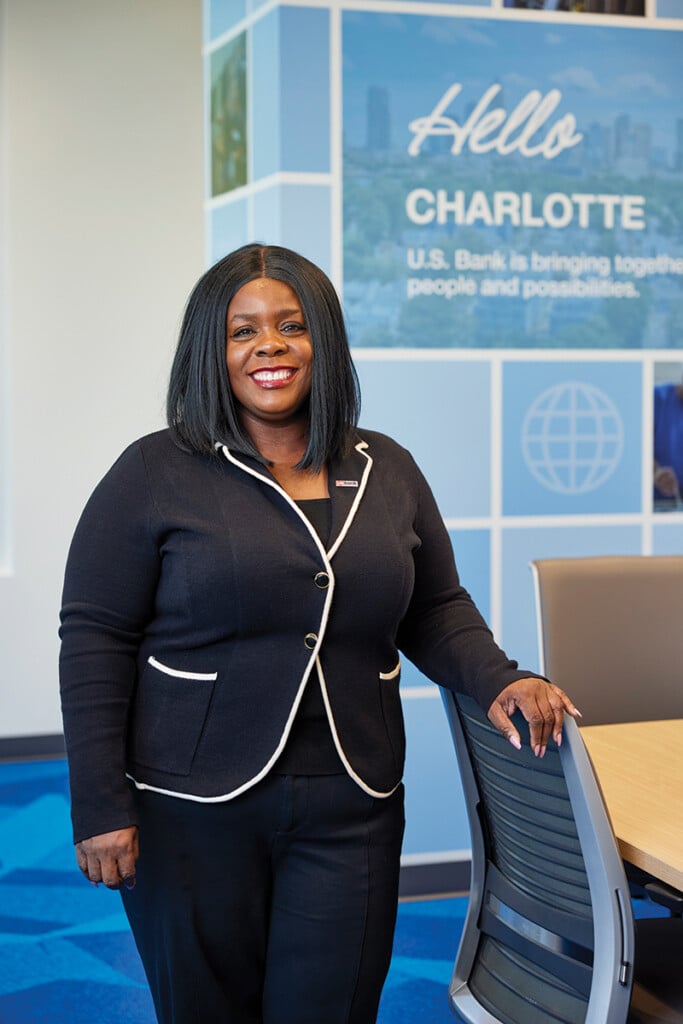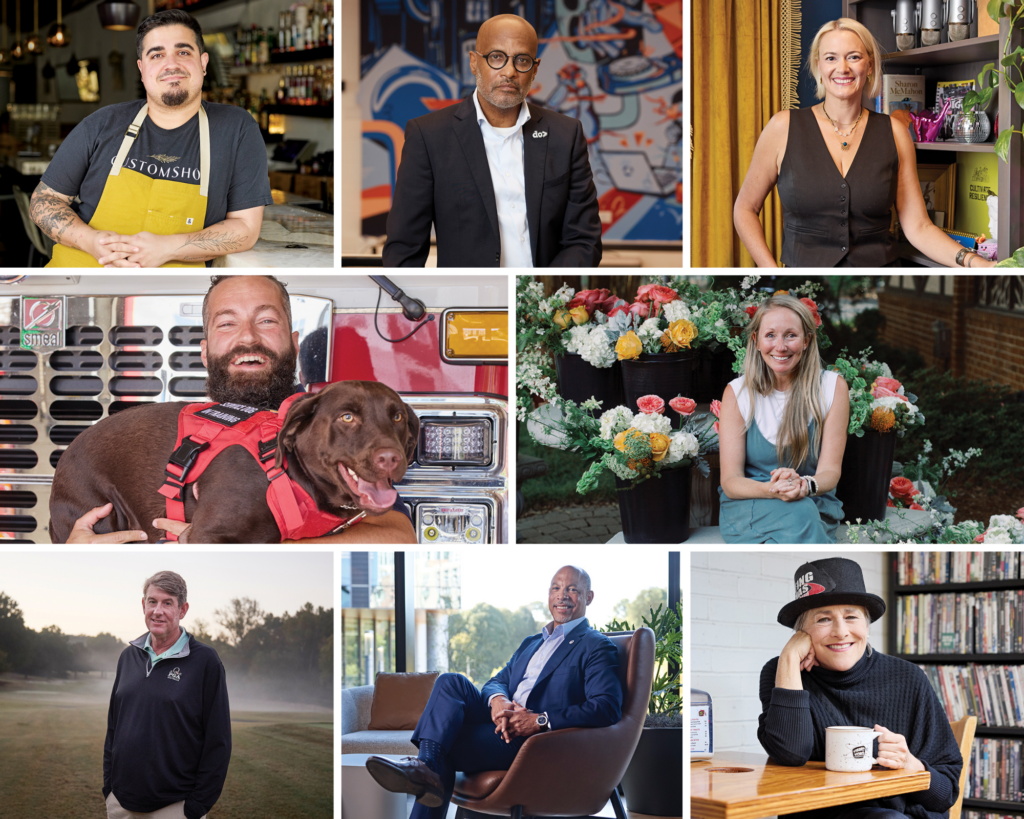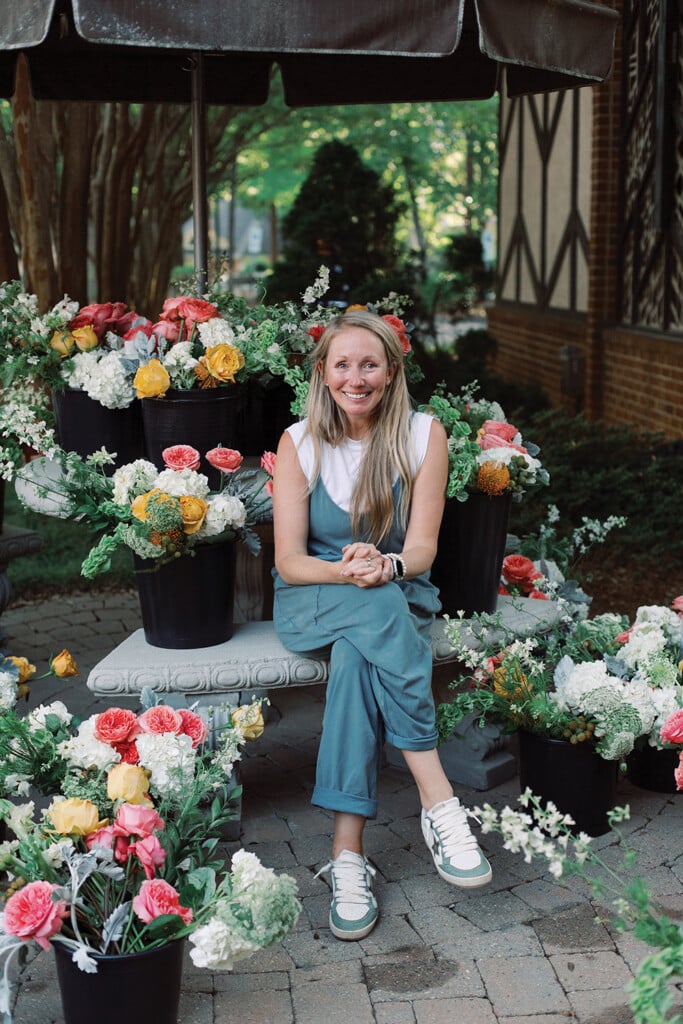2023 Charlotteans of the Year: Tamika Stafford
The former part-time teller leads a national U.S. Bank effort to boost the prospects of Black business owners

Tamika Stafford’s first banking job, and her first job of any kind in the South, was as a part-time teller in Aiken, South Carolina, in 1999. She’d grown up in Brooklyn and served as a volunteer minister at the World Headquarters of Jehovah’s Witnesses. There, she met a fellow minister, originally from South Carolina. She married him, they moved south, and Stafford took the bank job.
The longer she spent in the field, the more she realized that financial services aligned with her faith. Self-sufficiency is a key tenet for Jehovah’s Witnesses, and as Stafford advanced in her career—including 15 years with BB&T in Atlanta, where she eventually led business development programs for underserved communities—she grasped how much building social capital depends on building capital.
“The ability to ‘teach people how to fish’ and to do for themselves versus handouts and just giving them things; helping them understand and reason for themselves why things are the way they are—from a spiritual perspective, that was always very important to me,” Stafford says. “I’ve had family members that have had struggles. And after I divorced, I even had my own. So it was a journey for me as well.”
The path has led to her current job, an unusual one for a bank official—and for a bank. Stafford leads a national U.S. Bank program designed to help minority business owners gain access to three crucial things they often lack: information, connections, and capital, usually loans. The program is part of a broader U.S. Bank effort to reduce “the persistent racial wealth gap, starting with the Black community.” That issue continues to shape Charlotte’s social fabric nearly a decade after the infamous Chetty study, which ranked Charlotte last among 50 American cities in economic mobility.
The broader effort, Access Commitment, launched in February 2021 in response to calls for social change after the 2020 police killing of George Floyd in U.S. Bank’s home city of Minneapolis. Bank officials base their prioritization of Black clients on the results of a 2019 Federal Reserve survey that shows “the typical White family has eight times the wealth of the typical Black family and five times the wealth of the typical Hispanic family.” (The bank plans to expand the program to more markets and to serve Hispanic business owners.) The team of Business Access Advisors, which Stafford leads, operates in nine U.S. Bank markets throughout the country; the bank hired her in December 2021 to lead its efforts in Charlotte and promoted her this year to oversee the team nationwide.
“You can’t acknowledge the social injustice piece without realizing its twin brother, the economic injustice,” she says when we meet at U.S. Bank’s main branch uptown.
“Banks knowingly, historically, as an industry, have been complicit in creating some of the economic barriers that exist for people of color—so U.S. Bank wanted to be part of the solution … starting with the Black community, because that’s where the racial wealth gap exists.”
That’s why Access Business generally works with community organizations, like the business mentorship group SCORE Charlotte and financial education nonprofit Common Wealth Charlotte, not just traditional business entities like the Charlotte Mecklenburg Black Chamber of Commerce and Women’s Business Center of Charlotte. As of September, the advisers across the nation had met with nearly 1,800 business owners, Stafford says, “and we’re talking deep-dive conversations, not just, ‘Hey, how are you?’
“It’s all a long game, right? This didn’t happen overnight, and it’s not going to be repaired overnight,” she says. “But incrementally, we want to do our part to help, and it makes me feel good knowing that I have a part in that.”
Greg Lacour is the editor.





